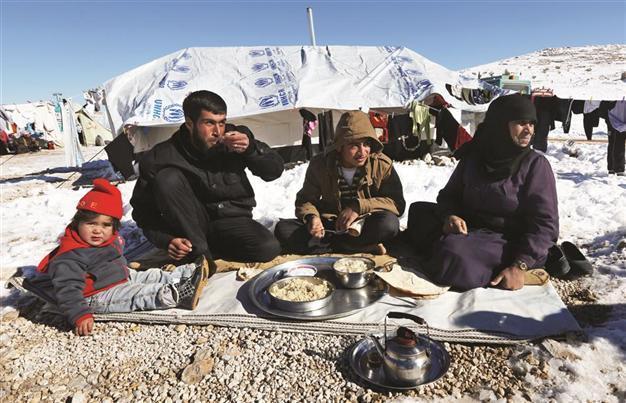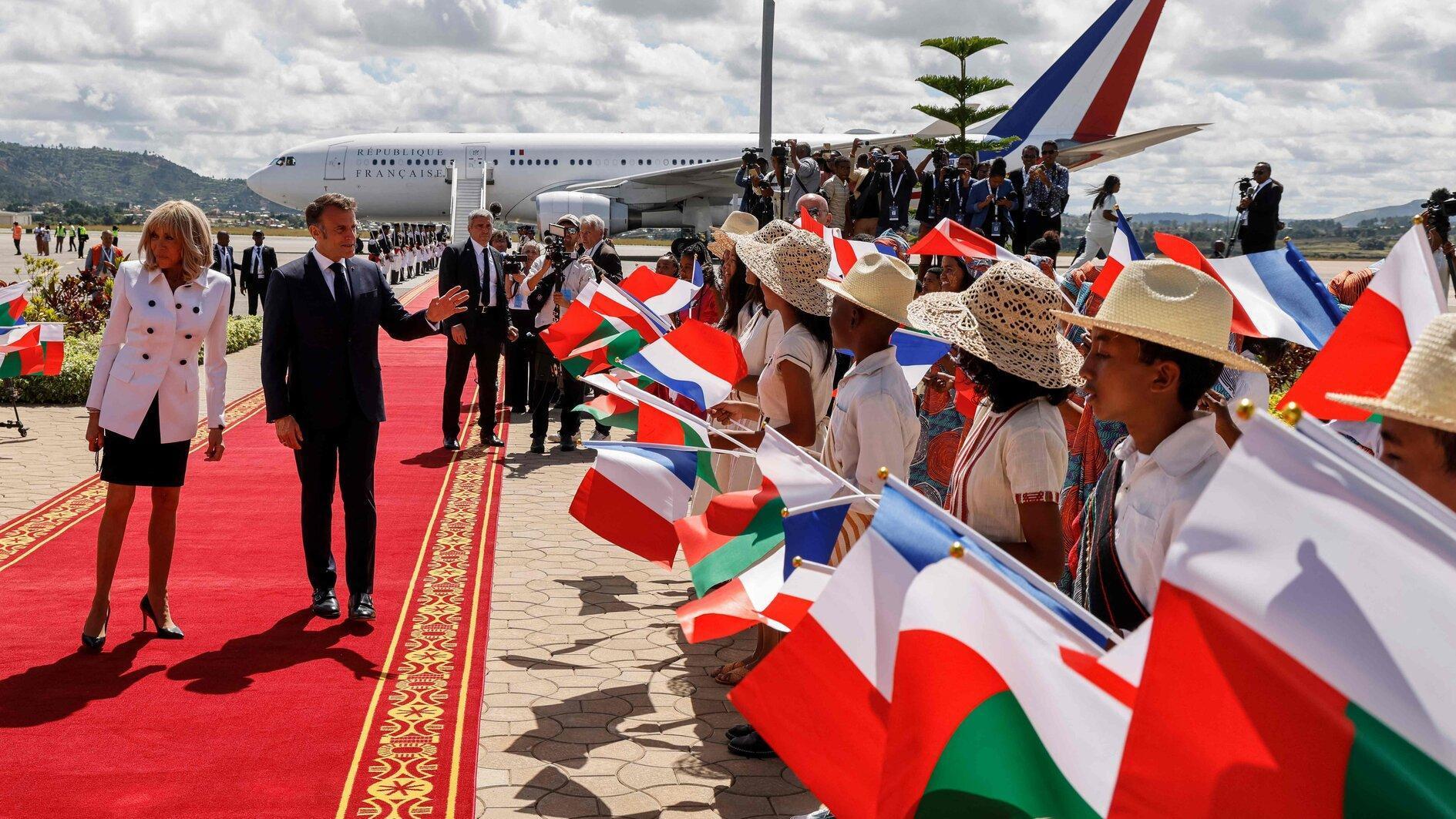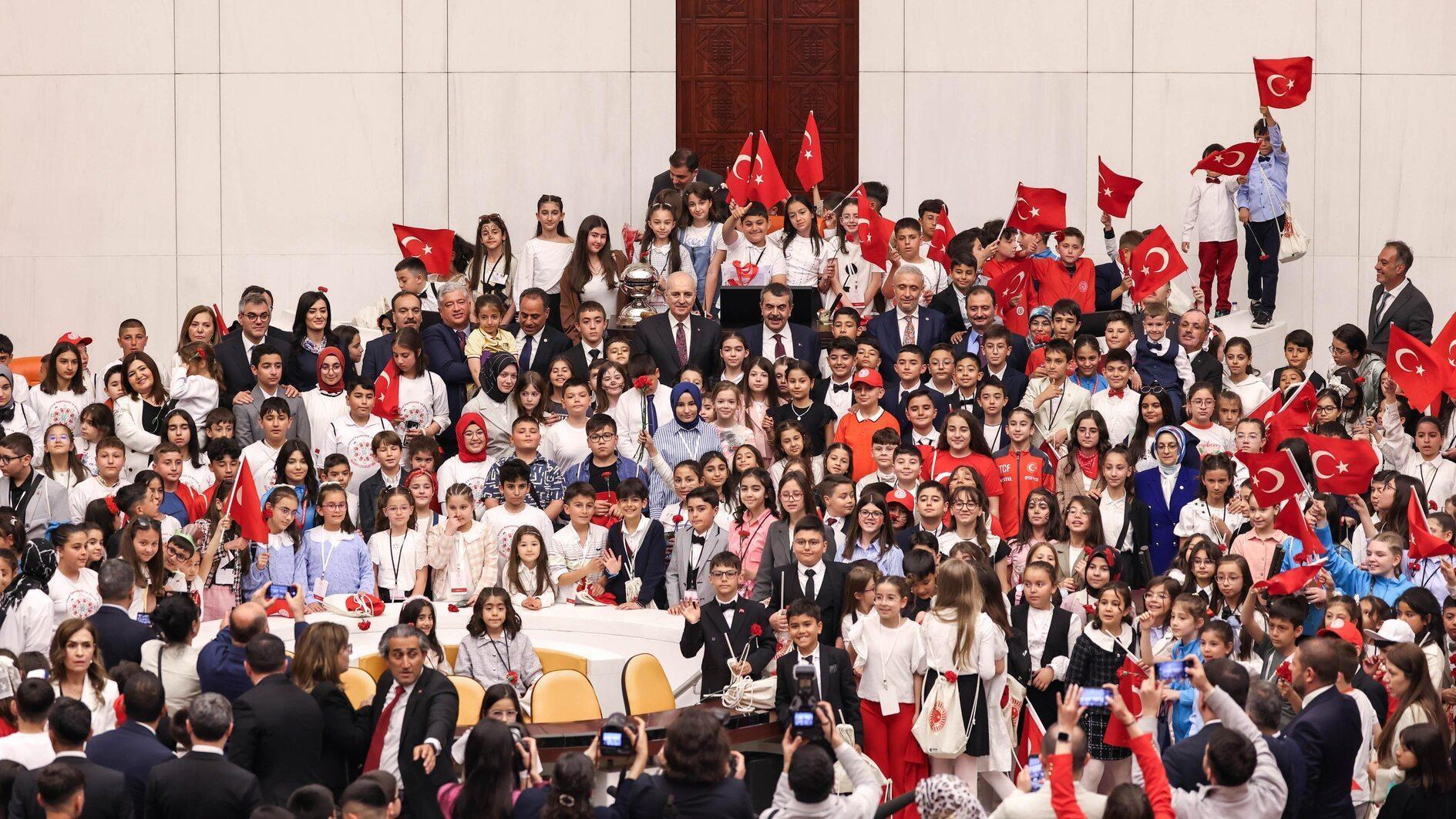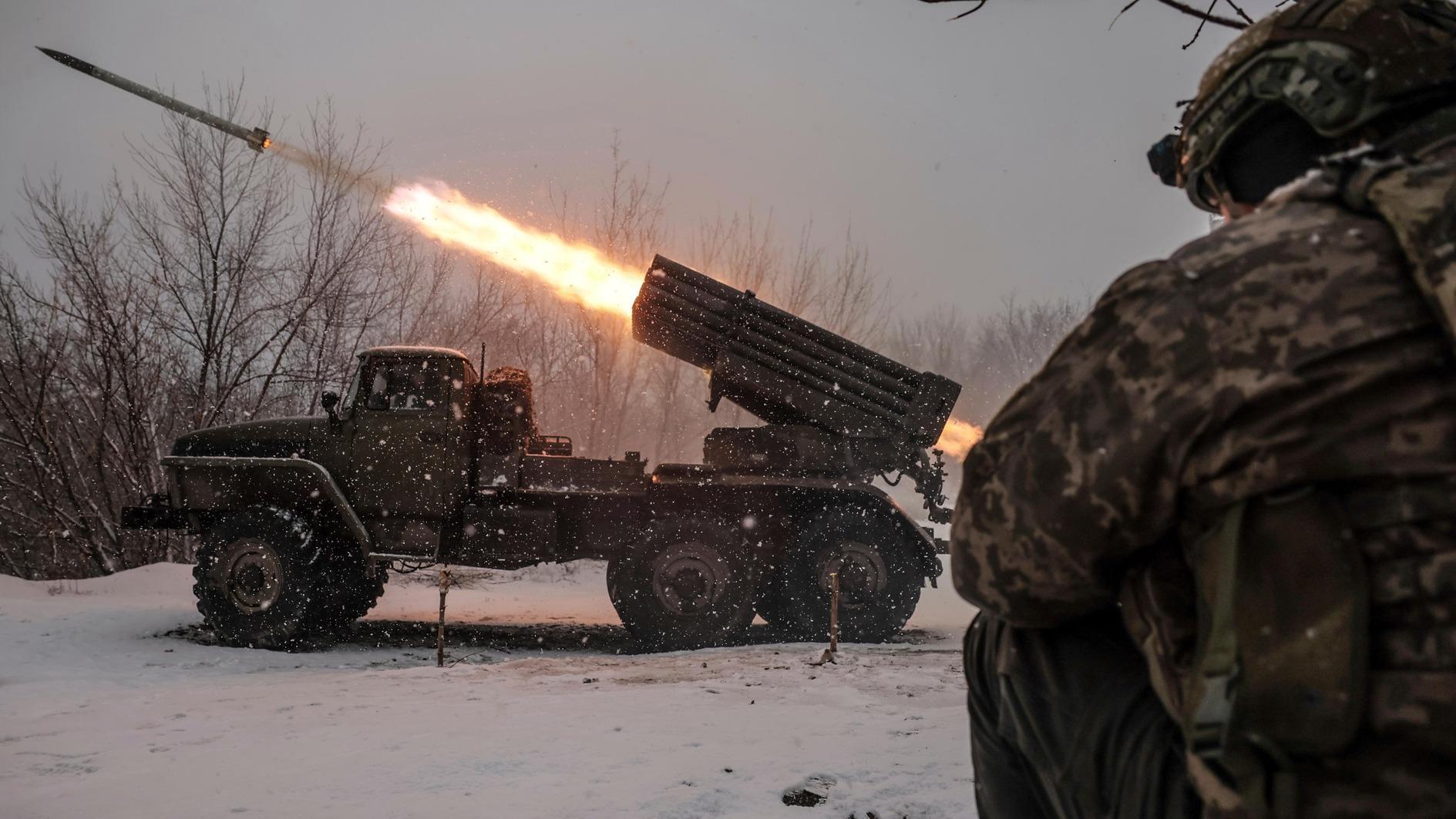UN launches biggest ever Syria aid appeal
GENEVA

Syrian refugees eat lunch outside a tent in a Lebanese camp. Fears are growing for the plight of refugees, especially amid harsh winter conditions. AP photo
The United Nations has appealed for $6.5 billion for Syria and its neighbors, the largest appeal ever for a single crisis, to help 16 million people next year, many of them hungry or homeless victims of a 33-month-old conflict that has no end in sight.The Syrian appeal accounted for half of an overall funding plan of $12.9 billion to help 52 million people in 17 countries, announced by U.N. emergency relief coordinator Valerie Amos at a meeting of donor countries in Geneva.
“This is the largest amount we have ever had to request at the start of the year,” she told a news conference, referring to the worldwide appeal.
“The increasing number of internally displaced people and refugees is generating greater needs across all sectors and straining the capacities of neighboring countries, with profound regional consequences,” the appeal said of Syria.
The U.N. sent its first delivery of humanitarian aid by air to Syria from Iraq on Dec. 15 and said it planned to deliver more food and winter supplies to the mainly Kurdish northeast in the next 12 days.
The U.N. also said the number of Syrian refugees in the Middle East would nearly double over the next year to exceed 4 million.
It is seeking $2.3 billion to help 9.3 million people in Syria next year, compared with its 2013 appeal of $1.4 billion, of which only 62 percent has been received, U.N. figures show. For five neighboring countries, Turkey, Egypt, Iraq, Jordan and Lebanon, the world body is seeking $4.2 billion to assist up to 4.1 million Syrian refugees and host communities who will be given food aid, including cash or vouchers. In all, 660,000 Syrians will be living in refugee camps by the end of 2014, while another 3.44 million will be living in private accommodation, the U.N. said. The countries themselves already put the number at around 3 million, five times the 588,000 Syrians who were registered as refugees in the region a year ago.
U.N. agencies aim to provide food, clean drinking water, shelter, education, health services and polio vaccines to Syrians inside and outside the devastated country.
The U.N. World Food Programme aims to feed 4.25 million people in Syria, where it reached only 3.4 million in November. “This is the worst humanitarian crisis that we have seen in decades; with every day, more vulnerable Syrians [are] pushed into hunger,” said Muhannad Hadi, WFP’s Syria Emergency Coordinator.
The overall U.N. appeal also includes aid to Sudan, South Sudan, Yemen, the Democratic Republic of Congo, Afghanistan and the Philippines.
Meanwhile, the price of bread in Syria has soared by 500 percent since its 33-month conflict erupted, the International Rescue Committee (IRC) said yesterday, warning of dire consequences as winter takes hold.
The IRC also said four out of five Syrians were now worried about food running out, while more than half of them were struggling for access to clean water.
“The price of bread has risen by up to 500 percent,” the IRC said in a statement issued as temperatures plummeted to below freezing in parts of Syria.
“Material goods are also in short supply,” the nongovernmental organization said in a report based on its surveys of more than 500 communities across Syria.
At $27, the cost of blankets is prohibitively high at around “93 percent of the average monthly income,” it added.
The International Rescue Committee also pointed to “severe shortages of basic medical items such as antibiotics, painkillers, and gauze in eight governorates.”
“These findings show that starvation is now threatening large parts of the Syrian population,” said IRC President David Miliband. “With polio on the loose, and a sub-zero winter already here, the people of Syria now face months of more death and despair. We are witnessing a humanitarian catastrophe that is receiving far too little attention and funding around the world,” said Miliband.
















